41 reflexive verbs spanish practice worksheet
Reflexive Verbs (Present Tense) Practice Worksheet. PRACTICE: Translate the sentence with the Reflexive Verb & Matching Pronoun. (see vocab on next page).12 pages
Results 1 - 24 of 1300+ — This Spanish verbs worksheet includes 2 parts: A. Matching section for common reflexive verbs B. Short answer section where students need ...
"self-devoted" to some practice or purpose (usually evil), late 14c., past-participle adjective from abandon (v.) in the reflexive sense. Hence, in a general way, "shamelessly wicked" (1690s). Meaning "deserted, forsaken" is from late 15c.
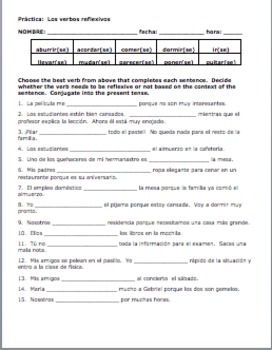
Reflexive verbs spanish practice worksheet
"discontinuance of use, practice, custom, or fashion," mid-15c., from Latin desuetudo "disuse," from desuetus, past participle of desuescere "become unaccustomed to," from de "away, from" (see de-) + suescere "become used to, accustom, habituate," from PIE *swdh-sko-, from extended form of root *s(w)e- pronoun of the third person and reflexive (referring back to the subject of a sentence); see idiom. From 1630s as "state of disuse."
Vocabulary: Reflexive verbs. Grammar: Reflexive pronouns, reflexive verb conjugations, stem-changing reflexive ... Spanish I Study Guide—Reflexive Verb Unit.7 pages
word-forming element making nouns implying a practice, system, doctrine, etc., from French -isme or directly from Latin -isma, -ismus (source also of Italian, Spanish -ismo, Dutch, German -ismus), from Greek -ismos, noun ending signifying the practice or teaching of a thing, from the stem of verbs in -izein, a verb-forming element denoting the doing of the noun or adjective to which it is attached. For distinction of use, see -ity. The related Greek suffix -isma(t)- affects some forms.
Reflexive verbs spanish practice worksheet.
Free Practice Resources: Practice Worksheet: Reflexive Verbs · Answer Key: Reflexive Verbs. Related Videos: Subject Pronouns · Possessive Adjectives.
Spanish possessive adjectives worksheet 2 answers indirect object pronouns spanish worksheet and possessive pronouns worksheet are three main things we will present to you based on the gallery title. In the example below juan is the indirect object. Some of the worksheets for this concept are spanish direct indirect and reflexive pronouns ...
No information is available for this page.Learn why5 pages
1530s, "delivered over" by judicial sentence (as a debtor to his creditors, a sense from Roman law); past-participle adjective from addict (v.). Sense of "dependent" (1560s) is reflexive, "self-addicted," from the notion of "give over or award (oneself) to someone or some practice;" specialization to narcotics dependency is from c. 1910. Earlier English adjective was simply addict "delivered, devoted" (1520s).
late 14c., practisen, "to follow or employ" a course of action; c. 1400, "to do, put into action or practice;" from Old French pratiser, practiser "to practice," alteration of practiquer, from Medieval Latin practicare "to do, perform, practice," from Late Latin practicus "practical," from Greek praktikos "practical" (see practical). From early 15c. as "to carry on a profession," especially medicine; also "to do or perform repeatedly or habitually with the object of acquiring skill, to learn by repeated performance;" from mid-15c. as "to perform, work at, exercise." Intransitive sense of "perform certain acts repeatedly, train one's self" is by 1590s. Sense of "to cause to practice, teach by exercise, train, drill" is from 1590s. Related: Practiced; practicing.
early 15c., practise, "practical aspect or application," originally especially of medicine but also alchemy, education, etc.; from Old French pratiser, from Medieval Latin practicare (see practice (v.)). It largely displaced the older word, practic, which survived in parallel into 19c. From early 15c. it began to be assimilated in spelling to nouns in -ice. Sense of "habit, frequent or customary performance" is from c. 1500. Meaning "exercise for instruction or discipline" is from 1520s. Sense of "action, the process of accomplishing or carrying out" (opposed to speculation or theory) is from 1530s. The meaning "regular pursuit of some employment or business" is from 1570s. In 16c.-17c. it also was used in an evil sense, "conspiracy, a scheme." Practice is sometimes erroneously used for experience, which is a much broader word. Practice is the repetition of an act : as, to become a skilled marksman by practice. Experience is, by derivation, a going clear through, and may mean action, but much oftener views th
Spanish Verb Conjugation Worksheets Blank Spanish Reflexive Verbs ... There are two exercises provided here; in the first, the learner has to write the ...
c. 1200, Spainisc, from Spaine "Spain," from Old French Espaigne (see Spaniard) + -ish. Replaced Old English Speonisc. Altered 16c. by influence of Latin. As a noun, "the Spanish language," from late 15c. For Spanish Main see main. Spanish moss is attested from 1823. Spanish fly, the fabled aphrodisiac (ground-up cantharis blister-beetles), is attested from c. 1600. Spanish-American War was so called in British press speculations early 1898, even before it began in April. For Spanish Inquisition (by c. 1600), see inquisition.
Learn How to Conjugate and Use Reflexive Verbs in Spanish, With Example Sentences and Exercises for Practice.
1909, from work (n.) + sheet (n.1).
in commando, desperado, tornado, and other words of Spanish and Portuguese origin, "person or group participating in an action," from Latin -atus, past participle suffix of verbs of the first conjugation (see -ade).
1580s, "reflective, capable of bending or turning back," from Medieval Latin reflexivus, from Late Latin reflexus (see reflect). Meaning "of the nature of a reflex" is from 1839 (implied in reflexively). Grammatical sense, in reference to verbs especially, "turning the action back upon the subject," is by 1740. Related: Reflexiveness; reflexivity.
Spanish reflexive verbs worksheets and powerpoints - lesson plans, tests, quizzes, interactive activities and more.

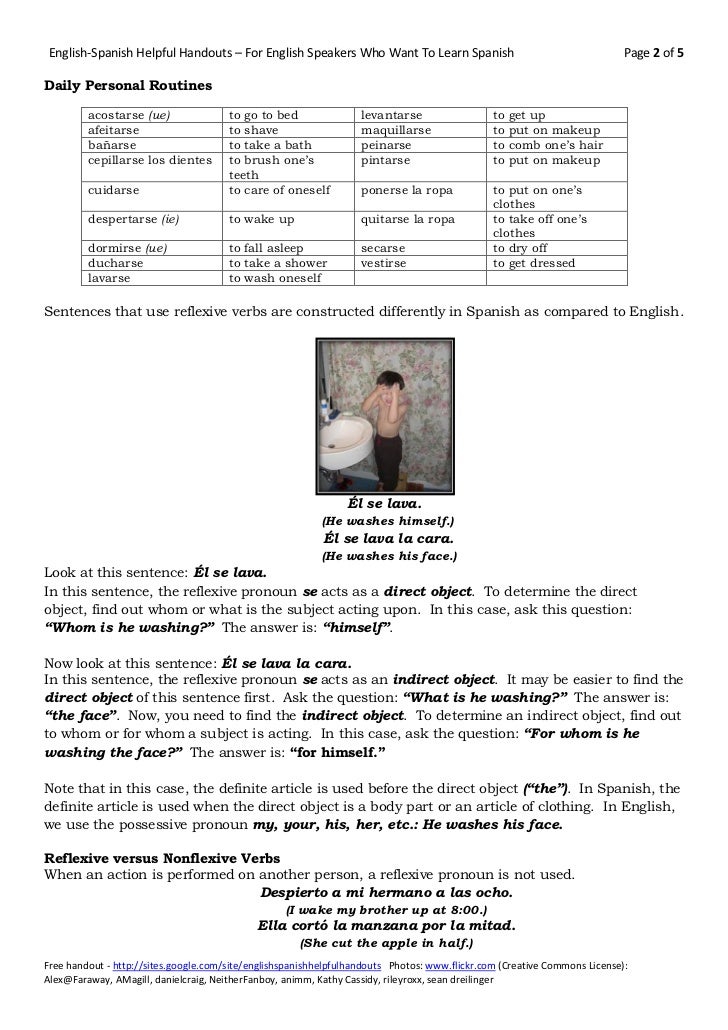









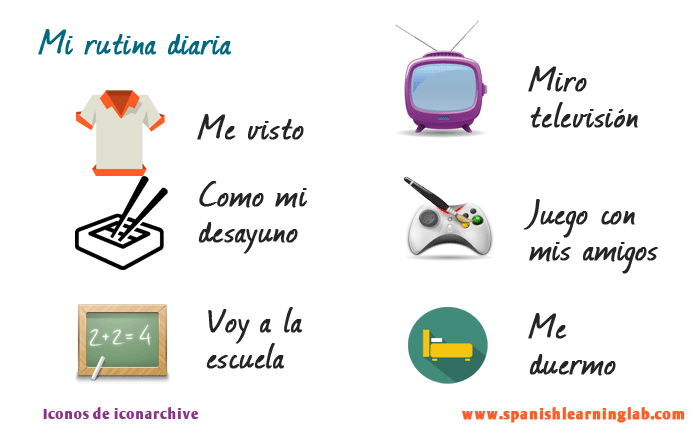




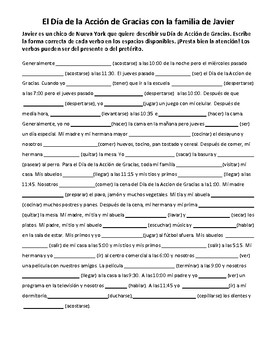





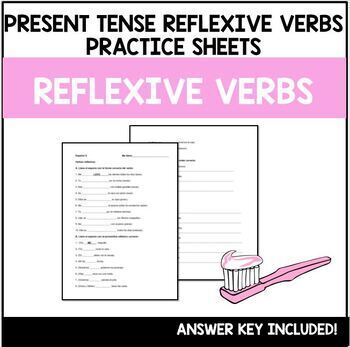

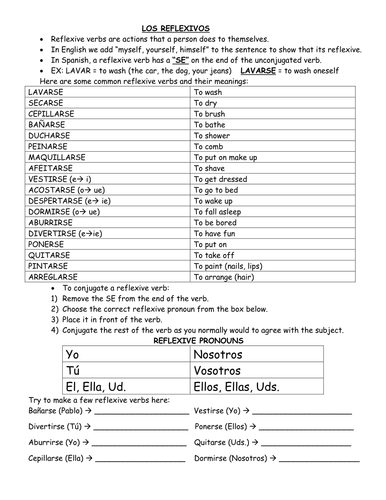


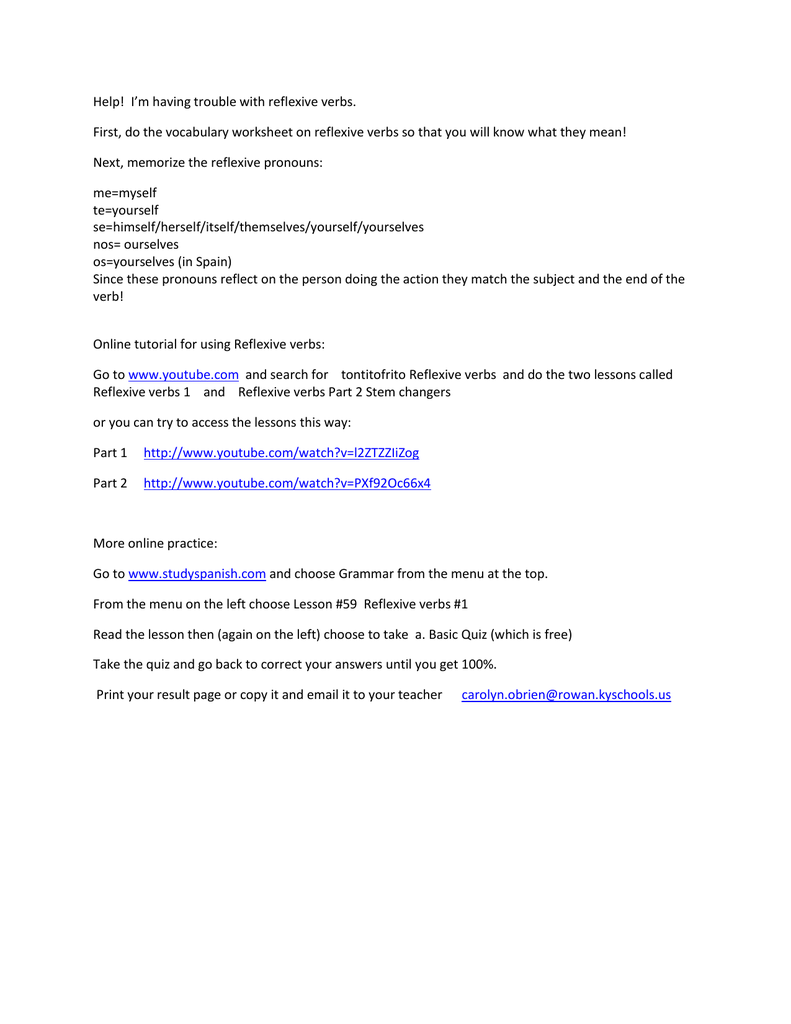
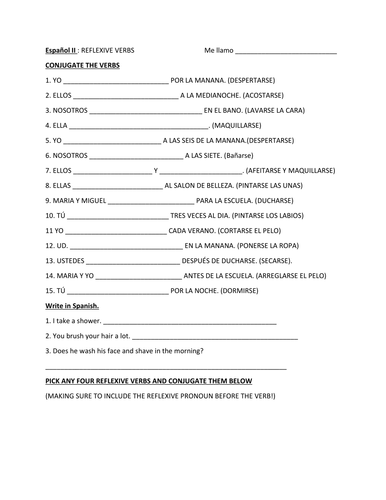
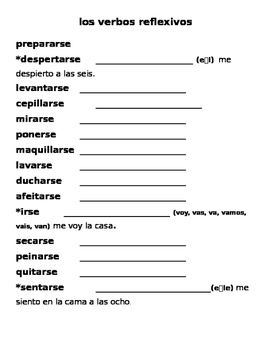
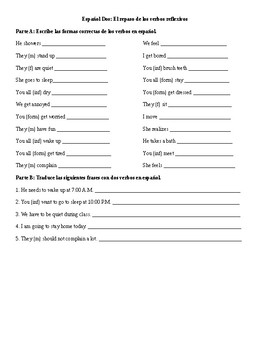
0 Response to "41 reflexive verbs spanish practice worksheet"
Post a Comment